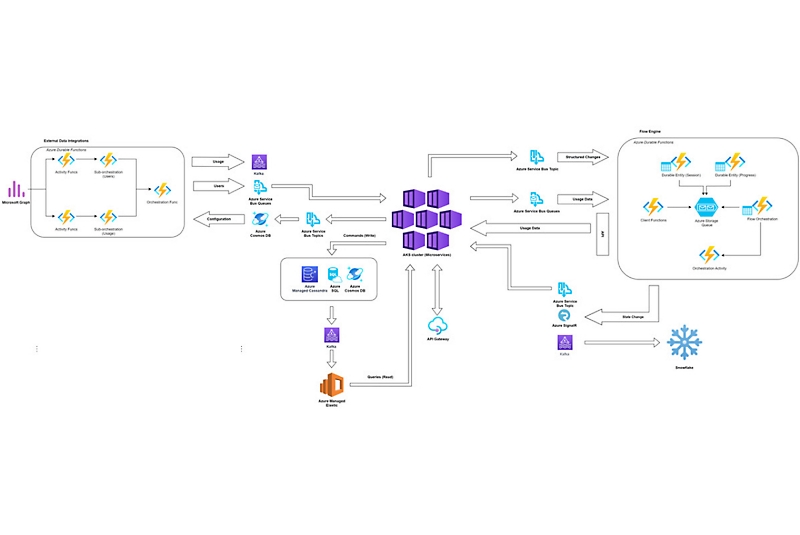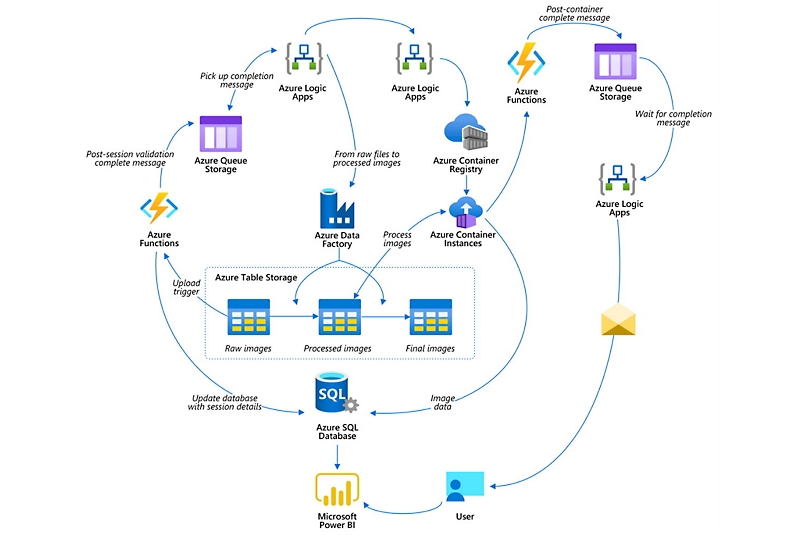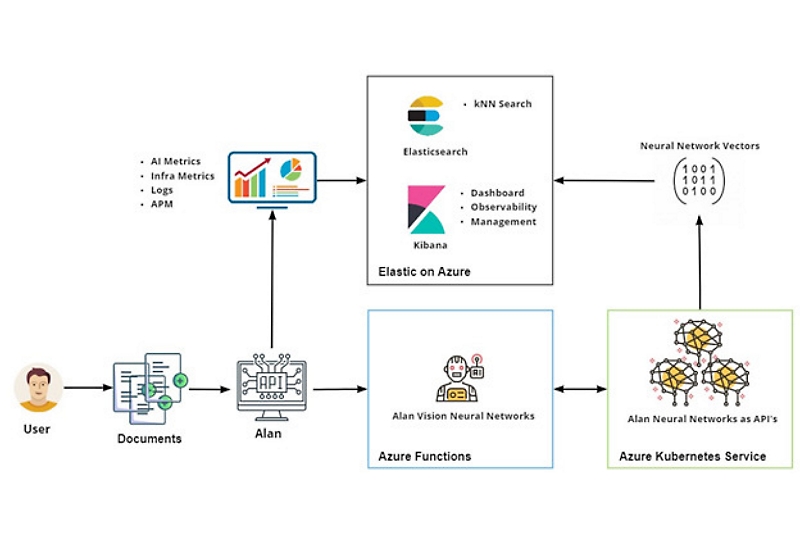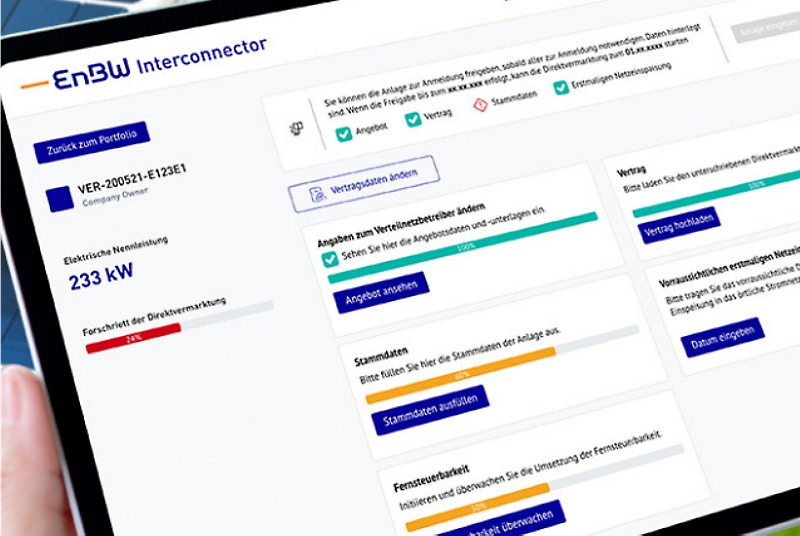Accelerate and simplify serverless application development
Azure Functions is an event-driven, serverless compute platform that helps you develop more efficiently using the programming language of your choice. Focus on core business logic with the highest level of hardware abstraction. Simplify complex orchestration challenges, build and debug locally, deploy at scale in the cloud, and connect functions to Azure services using triggers and bindings. Get started with the key scenarios.
Integrated programming model with a variety of programming languages
Built-in serverless elasticity to build fast, secure, and reliable apps at scale
Flexible hosting options with a pay-per-use model for improved operational efficiency
Built-in DevOps tools for an end-to-end development experience

Develop your way
- Optimize inner loop development on your local machine.
- Accelerate development by using your existing programming language skills. With the integrated programming model, respond to events and seamlessly connect to other services with a rich set of triggers and bindings.
Use event-driven architecture with open-source components
- Build your app with a wide variety of data and event sources.
- Simplify complex orchestration challenges with the Durable Functions extension and write stateful workflows in a serverless compute environment.
- Easily integrate multiple app types in a microservices design.
- Secure your apps with Azure Key Vault, network isolation, and built-in interoperation with other Azure services.
- Enforce regulatory compliance controls using Azure Policy with built-in guardrails and cloud security benchmarks.

Build cost-optimized portable serverless apps
- Choose your target compute with flexible hosting options including pay as you go.
- Leverage a centralized environment for consistent and secure network isolation, observability, and scaling.
Build and run apps anywhere
- Build and debug apps locally with open-source runtime.
- Deploy, monitor, and govern your applications with GitHub Actions, Azure DevOps, and more options
- Build extensible deployment pipelines for your needs.

Comprehensive security and compliance, built in
-
Microsoft invests more than $1 billion annually on cybersecurity research and development.
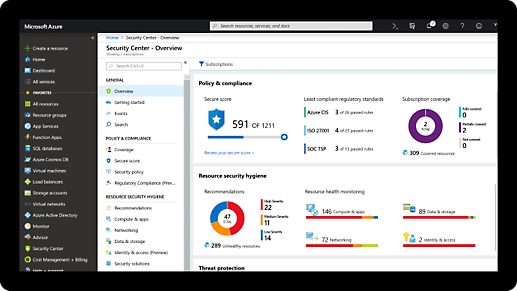
-
We employ more than 3,500 security experts who are dedicated to data security and privacy.
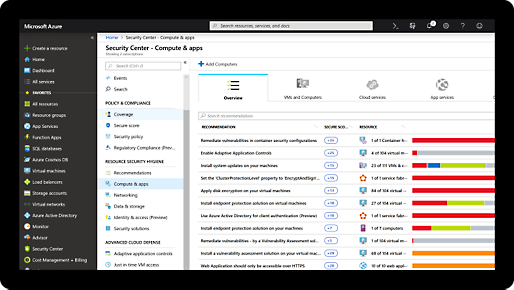
Choose the hosting plan that fits your business needs
Consumption plan
Scale automatically and pay only for compute resources when your functions are running.
Premium plan
Scale on demand, use pre-warmed workers to run applications with no delay after idle, run on more powerful instances, and connect to virtual networks.
Azure App Service plan
Run Functions at regular App Service plan rates for long-running operations, and when more predictive scaling and costs are required.
Azure Container Apps (preview)
Use Functions with Container Apps plans for multitype microservices architecture, consistent network, observability, and billing configurations.
Get started with an Azure free account
1

2

After your credit, move to pay as you go to keep building with the same free services. Pay only if you use more than your free monthly amounts.
3

Azure Functions documentation, sample code, and resources
Learning resources
Find inspiration and explore detailed Functions concepts in the documentation.
Build and monitor event-driven applications with the Azure Serverless Computing Cookbook.
Community and Azure Support
Follow Azure Functions on Twitter.
Ask questions and get support from Microsoft engineers and Azure community experts on Stack Overflow.
Find samples and repositories on GitHub.
Build these solutions with Functions
Serverless APIs with Node.js or Microsoft .NET.
Serverless web application for static websites and single-page applications.
Serverless microservices for event-driven scenarios.
Machine learning workflows with a serverless architecture.
Serverless data processing pipelines for files and real-time data.
Serverless cloud automation and hybrid resources management.
Serverless rapid application development for line of business apps.
Frequently asked questions about Azure Functions
-
Functions provides varying levels of support for languages including C#, JavaScript, F#, Java, and Python.
-
Functions apps on Consumption plans and App Service plans will run or be available 99.95 percent of the time.
-
Functions can run in different modes: Consumption plan, Azure App Service plan, Premium plan, and Azure Container Apps (preview).
-
Avoid hard-coding access to other services like Azure Blog storage and Azure Cosmos DB using triggers and bindings. Triggers are what cause a function to run, and bindings are declarations that connect the function to another resource.
-
Create and test functions on your local machine using your favorite code editor and development tools. Connect local functions to live Azure services and debug them on your local computer using the full Functions runtime. The requirements for developing functions on your local computer depend on the programming languages and tools you prefer.
-
Running Functions on Container Apps (preview) is a good fit for multitype microservices architecture in a centralized environment. This gives you consistent network, observability, and billing configurations.





